Related Research Articles

Susan Lee Lindquist, ForMemRS was an American professor of biology at MIT specializing in molecular biology, particularly the protein folding problem within a family of molecules known as heat-shock proteins, and prions. Lindquist was a member and former director of the Whitehead Institute and was awarded the National Medal of Science in 2010.

Elizabeth Helen Blackburn is an Australian-American Nobel laureate who is the former president of the Salk Institute for Biological Studies. In 1984, Blackburn co-discovered telomerase, the enzyme that replenishes the telomere, with Carol W. Greider. For this work, she was awarded the 2009 Nobel Prize in Physiology or Medicine, sharing it with Carol W. Greider and Jack W. Szostak, becoming the first Australian woman Nobel laureate.

The American Association of Geographers (AAG) is a non-profit scientific and educational society aimed at advancing the understanding, study, and importance of geography and related fields. Its headquarters is located in Washington, D.C. The organization was founded on December 29, 1904, in Philadelphia, as the Association of American Geographers, with the American Society of Professional Geographers later amalgamating into it in December 1948 in Madison, Wisconsin. As of 2020, the association has more than 10,000 members, from nearly 100 countries. AAG members are geographers and related professionals who work in the public, private, and academic sectors.
The American Society for Cell Biology (ASCB) is a professional society that was founded in 1960.
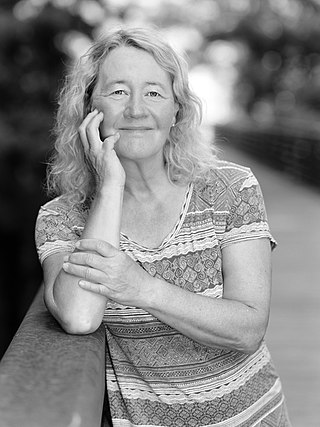
Carolyn Widney Greider is an American molecular biologist and Nobel laureate. She is a Distinguished Professor of Molecular, Cell, and Developmental Biology at the University of California, Santa Cruz.
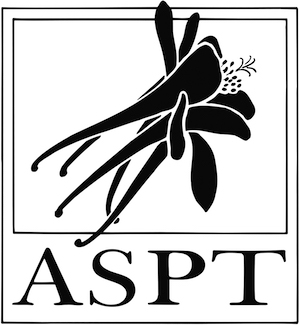
The American Society of Plant Taxonomists (ASPT) is a botanical organization formed in 1935 to "foster, encourage, and promote education and research in the field of plant taxonomy, to include those areas and fields of study that contribute to and bear upon taxonomy and herbaria", according to its bylaws. It is incorporated in the state of Wyoming, and its office is at the University of Wyoming, Department of Botany.
The International Behavioural and Neural Genetics Society (IBANGS) is a learned society that was founded in 1996. The goal of IBANGS is "promote and facilitate the growth of research in the field of neural behavioral genetics".
The American Society of Human Genetics (ASHG), founded in 1948, is a professional membership organization for specialists in human genetics. As of 2009, the organization had approximately 8,000 members. The society's members include researchers, academicians, clinicians, laboratory practice professionals, genetic counselors, nurses, and others who have a special interest in the field of human genetics.
The Genetics Society of America (GSA) is a scholarly membership society of more than 5,500 genetics researchers and educators, established in 1931. The Society was formed from the reorganization of the Joint Genetics Sections of the American Society of Zoologists and the Botanical Society of America.
Utpal Banerjee is a distinguished professor of the department of molecular, cell and developmental biology at UCLA. He obtained his Bachelor of Science degree in chemistry from St. Stephen's College, Delhi University, India and obtained his Master of Science degree in physical chemistry from the Indian Institute of Technology, Kanpur, India. In 1984, he obtained a PhD in chemistry from the California Institute of Technology where he was also a postdoctoral Fellow in the laboratory of Seymour Benzer from 1984-1988.
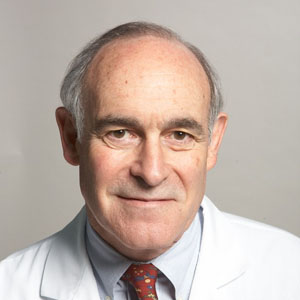
Robert J. Desnick is an American human geneticist whose basic and translational research accomplishments include significant discoveries in genomics, pharmacogenetics, gene therapy, personalized medicine, and the treatment of genetic diseases. His translational research has led to the development of the enzyme replacement therapy (ERT) and the chaperone therapy for Fabry disease, ERT for Niemann–Pick disease type B, and the RNA Interference Therapy for the Acute Hepatic Porphyrias.
Gerald Ralph Fink is an American biologist, who was Director of the Whitehead Institute at MIT from 1990–2001. He graduated from Amherst College in 1962 and received a Ph.D. from Yale University in 1965, having elucidated the histidine pathway in budding yeast, Saccharomyces cerevisiae. After postdoctoral study at the National Institutes of Health with Bruce Ames on the regulation of the histidine operon of Salmonella, in 1967 he joined Cornell University where he became a Professor of Genetics and pursued the study of the HIS4 region of yeast. In 1982 he became a founding member of the Whitehead Institute and Professor of Genetics at MIT. Dr. Fink was elected to the United States National Academy of Sciences in 1981, to the Institute of Medicine in 1996, and to the American Philosophical Society in 2003.

Sarah C.R. Elgin is an American biochemist and geneticist. She is the Viktor Hamburger Professor of biology at Washington University in St. Louis, and is noted for her work in epigenetics, gene regulation, and heterochromatin, and for her contributions to science education.
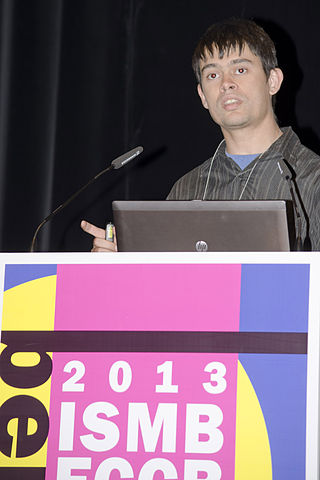
Gonçalo Rocha Abecasis is a Portuguese American biomedical researcher at the University of Michigan, serves as Vice President & Chief Genomics and Data Science Officer at the Regeneron Genetics Center, and was chair of the Department of Biostatistics in the School of Public Health. He leads a group at the Center for Statistical Genetics in the Department of Biostatistics, where he is also the Felix E. Moore Collegiate Professor of Biostatistics and director of the Michigan Genomic Initiative. His group develops statistical tools to analyze the genetics of human disease.
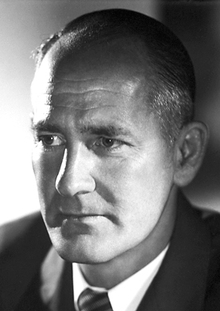
The George W. Beadle Award is a scientific prize given by the Genetics Society of America to individuals who have made “outstanding contributions” to Genetics. The Award was established in 1999 and named in honor of George Wells Beadle, who won the Nobel Prize in Physiology or Medicine in 1958.
Bruce Spencer Weir is a New Zealand biostatistician and statistical geneticist. He is Professor of Biostatistics and Professor of Genome Sciences at the University of Washington. He was previously the William Neal Reynolds Professor of statistics and genetics and director of the Bioinformatics Research Center at North Carolina State University. He is known within academia for his research in statistical and forensic genetics, and outside academia for testifying in the O.J. Simpson murder trial in 1995.
Steven Arthur Farber is an American scientist. He is a Professor of Biology at Johns Hopkins University.
Elizabeth Winifred Jones was an American geneticist and professor at Carnegie Mellon University (CMU).

R. Scott Hawley is an American geneticist and investigator at the Stowers Institute for Medical Research in Kansas City, Missouri, a member of the US National Academy of sciences and fellow of the American Association for the Advancement of Science. He has been President of the Genetics Society of America, and leads a research team focused on the molecular mechanisms that regulate chromosome behavior during meiosis.
References
- ↑ "The Elizabeth W. Jones Award for Excellence in Education". Genetics Society of America. Archived from the original on 2019-03-31. Retrieved 2019-03-08.
- ↑ Newlon, Carol S. (2009-03-25). "Elizabeth W. Jones, 8 March 1939-11 June 2008". Yeast. 26 (5): 299–302. doi:10.1002/yea.1664. PMID 19322900.